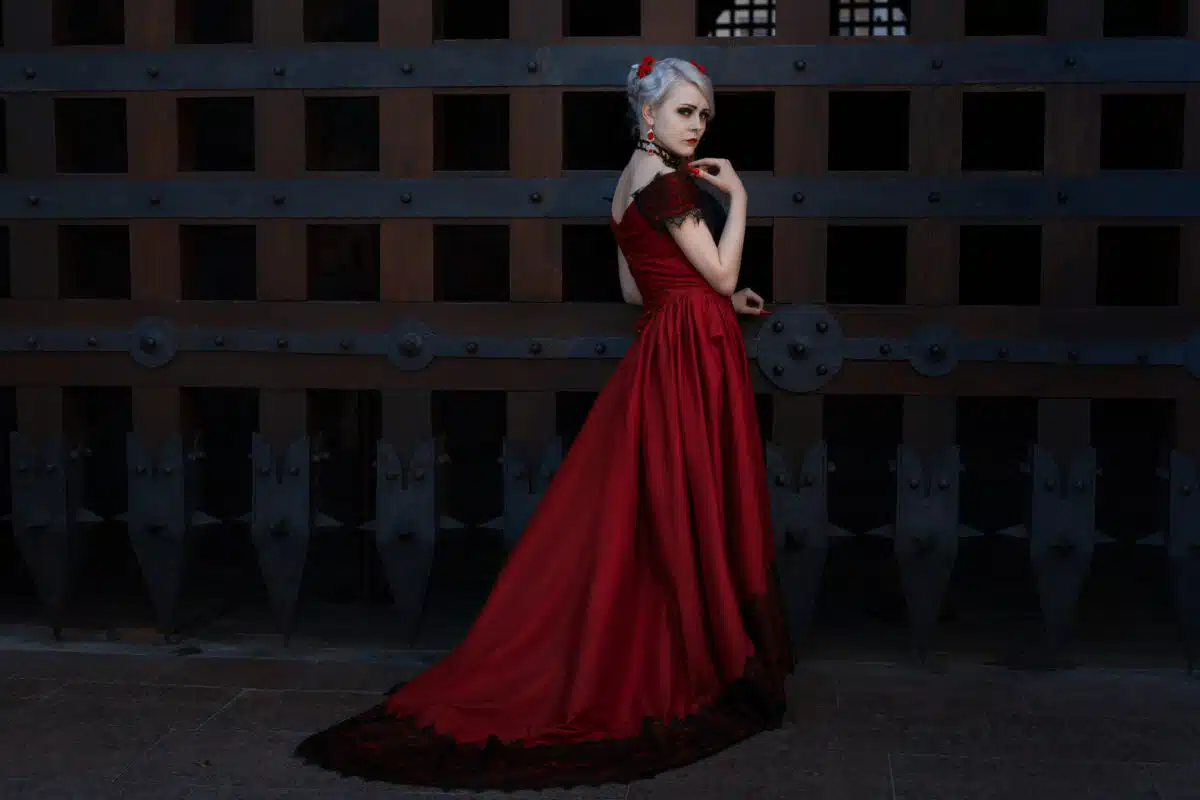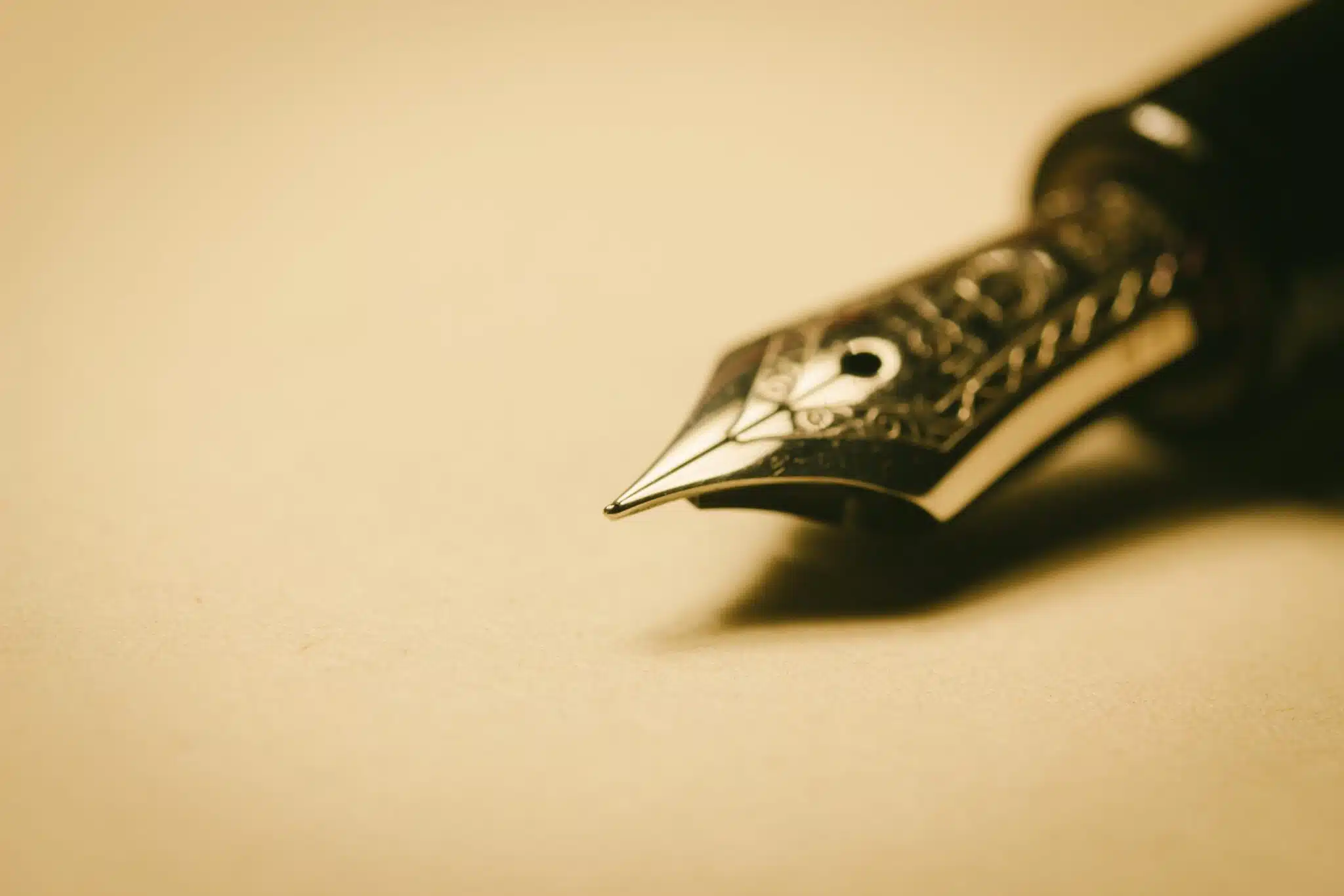Here’s what the Doggerel poetry form is:
Doggerel is traditionally a derogatory term referring to poetry with irregular meter and a lack of technical prowess, though it has also been used more innocently to refer to poems that are ‘easy to write.’
The word is usually used as a criticism and is best avoided unless you can back up your accusations with examples.
So if you want to learn all about the Doggerel poetry type, then you’ve come to the right place.
Let’s get right to it!

Forms of Poetry: Doggerel

Doggerel, derived from the Middle English dogerel, is usually seen as a derogatory term for short poetry that lacks regular meter, rhyme, etc.
It has also been used to describe poetry that is seen as “too easy” such as poems with cliché monotonous rhyme schemes.
It should be noted that despite being a pejorative term, it is not always entirely negative.
Nursery rhymes, for example, are notorious for being written almost entirely in what one might call doggerel.
What does and does not qualify as doggerel depends on how conservative the analyst making the claim is, as one might imagine.
William McGonagall tends to come up in conversations about doggerel.
His poetry has been widely criticized for its irregularity but he’s also a surprisingly popular poet.
It’s been said that his poems are “giftedly bad” and they tend to evoke an emotional reaction despite being seemingly rife with technical problems.
The amazing part is that his poems aren’t ironically popular.
While people love parodying them and imitating the style, his works are genuinely hot sellers to this day.
This is chiefly because readers and listeners see the poems as comedic, whether that was intentional or not.
Basic Properties of Doggerel

| Rhyme Structure | Either very simple or very bad |
| Meter | Irregular |
| Origin | As old as poetry |
| Popularity | Varies from poet to poet |
| Theme | Often humorous; whether intentional or otherwise |
How Is Doggerel Structured?

Actually, that may be the most hilariously misplaced question in this series of articles.
The whole point of doggerel is that it’s not structured, or at least not structured well.
Doggerel is characterized by being clumsy, amateurish, and frequently full of overused tropes.
Someone purposely writing doggerel might look for an opportunity to toss “babbling brook” into their poem, for example.
The concept of “purposely writing doggerel” is itself a loaded one.
The idea falls squarely into “so bad it’s good” territory.
Of course, the irony behind doggerel is that you can’t recognize a poem as being doggerel until you know enough about poetry to make that argument.
Still, even a casual audience can generally tell by ear when a poem is spectacularly off-meter and grammatically poor.
Doggerel is often, whether purposely or by accident, humorous in nature.
This can be because of the absurdity of how criminally bad the poem is, or it can be purposeful, like a much clunkier limerick.
While doggerel is sometimes used rather innocently to describe poems that are “simple,” it should be remembered that the original intent behind the word was to be offensive.
As such, it’s generally in poor form to ask your favorite poet what inspired them to write doggerel.
When it is used innocently, or relatively innocently as the case may be, it tends to be in reference to meters that the speaker feels are ‘easy.’
Someone who think limericks or English haikus are ‘easy’ forms might off-handedly refer to them as doggerel, but you should always be wary that the word is never the best way to describe any poem or poem form.
The reality is that even a single line of unmetered poetry may take hours of work if it was designed with intentionality and reimagined hundreds of times.
This is not to say that there’s no such thing as bad poetry, but someone who is serious about the craft would never stoop to calling someone else’s efforts meaningless.
Writers are supposed to understand the value of hard work and sincerity, ideally, regardless of the outcome.
Example of Doggerel

The Tay Bridge Disaster by William McGonagall
Beautiful railway bridge of the silv’ry Tay
Alas! I am very sorry to say
That ninety lives have been taken away
On the last sabbath day of 1879
Which will be remember’d for a very long time.
Oh! Ill-fated bridge of the silv’ry Tay,
I now must conclude my lay
By telling the world fearlessly without the least dismay,
That your central girders would not have given way,
At least many sensible men do say,
Had they been supported on each side with buttresses
At least many sensible men confesses,
For the stronger we our houses do build,
The less chance we have of being killed.
Ah, where to even begin with an analysis of doggerel.
Hopefully you can see some of the structural problems that led to this poem being called doggerel immediately.
There is no clear pattern to the line lengths.
The rhyme scheme is highly irregular, with several repetitions of the same sound despite it not actually being a monorhyme poem.
The clumsy attempt at metaphor at the end is, for my money, both the best and the worst part of the entire poem.
There’s a kernel of beautiful sincerity in that random little couplet about building houses, and you really can tell what the poet means, but how he says it is presented in a comically shallow way.
Yet, I would argue that the poem is wonderful.
Sure, it’s not technically sound in the slightest, nor would it impress your middle school English teacher, but does it need to?
The point of the poem, that the tragedy may have been preventable with better foresight, is clearly presented.
In that sense, it succeeds at what it wanted to do.
If it’s so broken and ‘bad’ that it manages to come full-circle and become charming again, then I would argue that’s a talent that’s hard to replicate.
Tips for Writing Doggerel

If you decide to pursue doggerel on purpose, as a creative or comedic outlet, then the irony is that you almost need to know the rules of poetry just as well as if you were writing a good poem.
In order to produce something “giftedly bad” you’re going to need to know all of the standards by which a poem is normally defined and purposely break them.
Traditional poems love predefined patterns above all else, so avoid those.
Instead of having meaningful metaphors that illuminate a complex topic, use shallow comparisons that fall purposely flat.
Write lines or phrases that sound deep, but really aren’t.
Avoid isosyllabic lines like the plague.
The ‘best’ doggerel would require you to flip all the switches in the wrong order.
Imagine if you were trying to do extremely poorly on a multiple-choice test.
Sure, you can just guess the answers, but in order to put out your worst possible performance you would actually need to know what all the correct answers are and purposely avoid them.
In that sense, getting a 0% on a multiple-choice test is about as impressive as getting a 100%.
It shouldn’t be possible to guess randomly and somehow get every single question exactly wrong, and that’s what makes the best doggerel impressive.
It’s so bad that it simply had to be intentional.
Of course, in McGonagall’s case it seems (according to records) that he just had a natural talent for doggerel, for better or for worse.
By all accounts, it seems likely that he was not neurotypical and that there were some very unusual things going on in his head that led to the poetry he produced.
We can’t all be as talented(?) as Mr. McGonagall, however.
For the rest of us, writing doggerel is going to take some genuine effort.
Poet’s Note

I cannot stress enough how rude it is to call a poet’s work ‘doggerel,’ especially since many modern writers might actually have to plug the term into a search engine to understand that you insulted them.
As such, I would most certainly never be heard saying that most self-described “Instapoets” are writing glorified doggerel and praising themselves for it.
No sir, that would be most rude.
Comprehensive Collection of Poetry Forms: Craft Words Into Art

Dare to traverse the entire spectrum of poetic forms, from the commonplace to the extraordinary?
Venture from the quintessential Sonnet to the elusive Mistress Bradstreet stanza, right through to the daunting complexity of Cro Cumaisc Etir Casbairdni Ocus Lethrannaigecht.
For those with a zeal to encounter the full breadth of poetry’s forms, this invitation is yours.
Start exploring the vast universe of poetic ingenuity with our comprehensive array of poetry forms right now!
